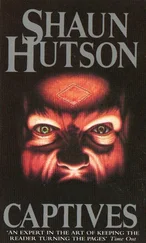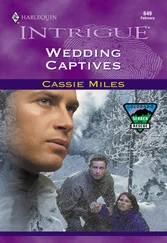Norman Manea - Captives
Здесь есть возможность читать онлайн «Norman Manea - Captives» весь текст электронной книги совершенно бесплатно (целиком полную версию без сокращений). В некоторых случаях можно слушать аудио, скачать через торрент в формате fb2 и присутствует краткое содержание. Год выпуска: 2014, Издательство: New Directions, Жанр: Современная проза, на английском языке. Описание произведения, (предисловие) а так же отзывы посетителей доступны на портале библиотеки ЛибКат.
- Название:Captives
- Автор:
- Издательство:New Directions
- Жанр:
- Год:2014
- ISBN:нет данных
- Рейтинг книги:3 / 5. Голосов: 1
-
Избранное:Добавить в избранное
- Отзывы:
-
Ваша оценка:
- 60
- 1
- 2
- 3
- 4
- 5
Captives: краткое содержание, описание и аннотация
Предлагаем к чтению аннотацию, описание, краткое содержание или предисловие (зависит от того, что написал сам автор книги «Captives»). Если вы не нашли необходимую информацию о книге — напишите в комментариях, мы постараемся отыскать её.
Captives
This is a moving account of a country shaken by communism and anti-Semitism and haunted by recent atrocities, from "a distinguished writer whose vision of totalitarianism is close to Kafka's cloudy menace, universal yet internalized" (Richard Eder,
).
Captives — читать онлайн бесплатно полную книгу (весь текст) целиком
Ниже представлен текст книги, разбитый по страницам. Система сохранения места последней прочитанной страницы, позволяет с удобством читать онлайн бесплатно книгу «Captives», без необходимости каждый раз заново искать на чём Вы остановились. Поставьте закладку, и сможете в любой момент перейти на страницу, на которой закончили чтение.
Интервал:
Закладка:
— He exited at the station in the morning. It was autumn, cold, like now. The carriage climbed the hill. You could hear the thud of horseshoes. They had entered the city: not a soul around. He had received a letter. It meant something had happened, so the wanderer thought.
— He had no way of knowing, but the quiet in the city seemed unusual to him. When he arrived at the main street, he raised his eyes to the windows of the houses, the two-story houses of the small town.
They were talking in whispers, huddled close together. It was dark in the compartment, and they continued telling the same story, taking turns.
— They were waiting for him behind the windows. He sensed it, even though he couldn’t see their faces.
— The letter didn’t say anything clearly, but suddenly he felt cornered by something evil. The residents had withdrawn from the windows, frightened of what would happen to him, or to themselves.
— He was trying to remember why he had come: in which of the letter’s sentences had he found such a peculiar phrase that he had climbed into a train that very night?
— He had no way of knowing: it was a prudent letter. Thrusting his hand in his pocked to get it out and reread it, he felt the invisible eyes from the windows again and lost courage to look for the letter. He had a sudden premonition, a way of knowing to whom the misfortune had happened.
— He had no way of knowing. . because he, the passenger, was absent, apathetic.
Later, the heavy hands of a conductor shook me awake. The train was stopping. It was empty. I had arrived at the end of my trip. I belted my trench coat. The railway carriage steps were damp. I came out behind the station where buses or carriages usually waited. There weren’t any vehicles, or any other travelers. Dawn was coming up damply. The church towers could be seen at the foot of the hill. A sea of white mist rose, the breath of the dawning day.
The sound of horses approached, galloping. In the cab, I lay back against the gnawed leather cushions: it was an old carriage, driven by a small coachman with red hair. Wheels grating, the horses strained up to the lip of the hill. The city seemed deserted. The carriage had taken a route through the back of a park. I climbed down in front of the Post Office. The house was several yards away. Mother ran toward me with her large coat hanging open. She was still panting when she wrapped her arms around me.
Confused, she looked through her pockets for the keys. When she sat down next to me, she was trembling. She took my hands and asked me how my trip went. She had heavy eyes with dark circles around them. As she came closer, she seemed to be guarding herself against me.
— How’s Father?
— Well. Everyone’s well. We have problems with Donca. Imagine — her. . she’s such a lively girl. Her hair is falling out. Don’t ask her about it. We’ve been to doctors. They prescribed all kinds of treatments. We had to shave her head. Pretend not to notice! You know how she was, always out in vacant lots with boys. Now she doesn’t leave the house anymore. She needs to wear a wig for a few months. She locks herself up in the house, reads till dawn, keeps away from us. It will solve itself in the end, so don’t trouble yourself. But tell me, how are you doing?
Her eyes were heavy: she was grabbing and letting go of my hands. So, Donca had a shaved head like our sisters used to have; the doctors would no longer be able to help her forget, to start over again from the beginning. Her blond hair, so new, so young. . Mama couldn’t settle down near me: her eyes were heavy. We would need to hurry with our hugs, our despair.
— How’s Father?
— Well, dear, well. Don’t worry. Well. But you, how did it go, you, but you, which. . and she was suddenly in tears. I felt her shoulders against my own.
She got tangled in hiccups, her words ran together.
— It will be alright with Father, and with Donca, too. You’ll see. Only, we mustn’t lose ourselves — and she lost control again. . Don’t despair. You’ll see. It will work out. It was something scandalous, unjust: the whole world knows. He was always correct. The case will be retried. Have faith. Now, you’re the one who must , who can’t. . I’m so alone. . And she collapsed again, spluttering, dragging me into her terrible sobs.
Then, she went back to work. I remained alone — without knowing how to repeat the scene to myself — her pale, wrinkled face before my eyes. I was seeing her eyes, her sunken cheeks, her suffering. I looked at the window, the bed, the walls: I should have suffered. It seemed like just yesterday that she was pummeling him with reproaches: “This one did this, that one did that, this one got hold of such and such and got himself fixed-up really well.”
Could it be. . do misfortunes fulfill certain predispositions or latent tendencies? My parents had found the strength to forget in order to start over, as Father said so many times. Then what had happened was neither surprising nor unjust. If he were reborn once, he could be reborn again. The cadaver might become a militant, forgetting again, starting everything all over again from the beginning; doing this or that and getting himself well-fixed, if that’s what was necessary to start everything all over again from the beginning, tomorrow and the day after that.
Therefore, I had no right to pain, only to shame. In my new circumstances, there was no better way to atone for it than by visiting my former schoolmasters Sofronie and Popovici and the former neighbor, Colette Triteanu, not to mention the great Virgil Mehedinţi.
Spent the afternoon alone with Donca. Spilling passionate phrases, she threw her arms around me and talked loudly. She had already accommodated herself to the role of wronged man’s daughter, and she emoted compassionately with Mama. She told me that for a while now she hadn’t been running around vacant lots, only reading. . Oh, yes, she was reading voraciously and feeling alone, gathered between the covers of books. She looked at me as though wanting to forgive me for all those nights of reading when my light kept waking her. Strongly confirming the signs of an emphatic kinship with me, she expressed herself negligently, used interjections, sighed often. Muttering French verses, she went over to the window. She swung her foreign braids. She was saying that she felt adrift like a drunken boat — past prison hulks’ hateful eyes. That would have been the moment to tell her that the term should be ennobled, as the poet wanted: one says “drunken ship,” not “drunken boat,” but she came close to declare how much she loved me, her exemplary brother, and she embraced me with vast, youthful despair. Maybe if I’d had time for her mood that day, it might have been possible to do something. Mother came back in the evening. Signaling me to avoid any delicate conversation with Donca, she fluttered around the table with silverware and napkins, and in the end, she managed to reveal for my benefit the swindle for which Father had been so exaggeratedly punished. She kept assuring me that things would work themselves out: we would all be happy soon.
The next morning: saw myself stretched out in bed, alone, without the courage to offer Sofronie and Popovici the satisfaction of a visit, not to mention the delicate Colette. Went out into the city instead, and came back at noon. In the afternoon, my sister continued sighing over the noble victim of injustice. Now, she felt like a mad plank under sea-blue, spiral-flaming skies, as the poet, intoxicated by love, had said so well. She longed for the cold, black pond on which a sad child on his knees sets sail a boat as fragile as a May butterfly: she felt herself that child, adrift on the great ocean. She added suddenly that Father had been completely stunned by the event: he had never attended any trial and had therefore behaved badly. In the evening, Mother reappeared. She had prepared some warm packages of food for my trip; she assured me that her husband was well and his confidence hadn’t been broken. Donca had heard this: her hair fluttered as splendidly as the stanzas she kept repeating. Returned on the same train. The little city had seen me for only several hours, but it was already inviting me for a reunion. My real healing would involve deadlines, meetings, and responsibilities. Time would pass quickly: five months. . five years. I had a target — I was becoming a passenger with a definite route again: I would travel to get somewhere, to participate in something.
Читать дальшеИнтервал:
Закладка:
Похожие книги на «Captives»
Представляем Вашему вниманию похожие книги на «Captives» списком для выбора. Мы отобрали схожую по названию и смыслу литературу в надежде предоставить читателям больше вариантов отыскать новые, интересные, ещё непрочитанные произведения.
Обсуждение, отзывы о книге «Captives» и просто собственные мнения читателей. Оставьте ваши комментарии, напишите, что Вы думаете о произведении, его смысле или главных героях. Укажите что конкретно понравилось, а что нет, и почему Вы так считаете.












